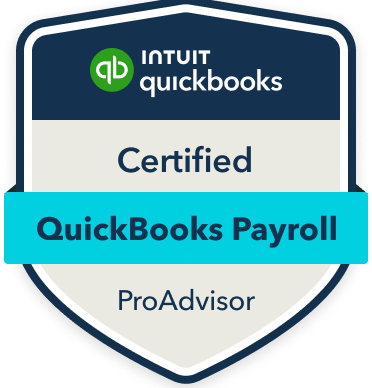Ensuring You're Paying Holiday Pay Correctly
When it comes to holiday pay, making sure employees are paid accurately and fairly is a top priority. Navigating holiday pay can be tricky, with varying requirements depending on where your business operates, your industry, and local laws. Mistakes or oversights in holiday pay can lead to costly penalties, employee dissatisfaction, and even legal issues. But by understanding the basics of holiday pay and keeping your policy up-to-date, you can ensure compliance, maintain positive morale, and strengthen trust within your team.


Ensuring You're Paying Holiday Pay Correctly
Managing payroll, holiday policies, and employee satisfaction is no easy task for business owners, and holiday pay is often a source of confusion and potential legal issues. Ensuring that employees receive accurate holiday pay is more than just good practice—it’s crucial for staying compliant, boosting morale, and fostering trust within your team.
Understand Holiday Pay Requirements
Holiday pay requirements vary widely based on location, industry, and business type. While some countries mandate paid holidays, others leave it to the employer’s discretion. As a business owner, your first priority is to understand the specific requirements in your jurisdiction.
Here are some key considerations:
Federal and State Laws: In the U.S., for example, federal law doesn’t require holiday pay, but many states have specific rules. The Fair Labor Standards Act (FLSA) doesn’t require extra pay for holidays, but some states mandate time and a half or double pay.
Industry Norms: Some industries, such as retail or hospitality, typically expect holiday pay. Look at what similar businesses in your field offer as a competitive benchmark.
Union Contracts and Agreements: If you have unionized employees, holiday pay provisions are often outlined in collective bargaining agreements, so it’s essential to follow those terms carefully.
Define Holiday Pay in Your Employment Policies
Once you understand your legal requirements, clearly outline your company’s holiday pay policy. This transparency helps avoid misunderstandings and potential grievances among employees.
Key components of a well-defined policy should include:
Eligible Holidays: Specify which holidays are paid and any that aren’t. It’s common to list public holidays, such as New Year’s Day, Thanksgiving, or Christmas, but you might also consider offering other days relevant to your company or employees.
Eligibility Criteria: Define who qualifies for holiday pay. Full-time employees are often eligible, while part-time and temporary staff may or may not be, depending on company policy.
Holiday Pay Rates: If you offer increased pay for holidays, be explicit. Commonly, employers pay time and a half or double time for holiday work, but this should be clearly stated in your policy.
Holiday Pay for Shift Workers: If your business runs on a shift basis, outline how holiday pay works for night shifts or for employees who work non-standard hours.
Calculating Holiday Pay: Best Practices
Calculating holiday pay can be straightforward or complex depending on the work schedules of your employees.
Here are a few examples of common pay calculations:
Hourly Workers: For employees who work variable hours, holiday pay can be calculated based on the average hours worked over a specific period (often 12 weeks) prior to the holiday.
Salaried Employees: If you have salaried employees, holiday pay is usually the same as a regular day’s pay. However, if they’re required to work on a holiday, an additional premium pay rate may apply.
Non-Standard Workweeks: For employees who work fewer or more than the standard five-day workweek, holiday pay calculations should be adjusted to reflect their actual schedule.
Avoid Common Holiday Pay Pitfalls
Managing holiday pay can be challenging, but understanding the most common pitfalls can help you avoid mistakes:
Not Communicating Clearly: Employees should know your holiday pay policy and how it applies to them. Miscommunication or lack of transparency can lead to morale issues or even legal challenges.
Incorrect Pay Calculation: Miscalculating holiday pay—especially for variable-hour employees—can lead to costly mistakes. A reliable payroll system or software can automate calculations, minimizing human error.
Overlooking Part-Time or Casual Workers: Even if part-time workers don’t qualify for full holiday pay, they may still be entitled to a pro-rated amount in certain jurisdictions.
Consider Holiday Pay in Your Budget
Holiday pay is a key part of your payroll budget, and costs can add up quickly if you’re offering premium rates.
Here’s how to budget for holiday pay effectively:
Plan Ahead: Analyze how holiday pay expenses have impacted your budget in previous years and adjust accordingly.
Account for Premium Rates: If you offer time and a half or double pay, ensure this is factored into your payroll budget for holiday periods.
Track Overtime: Holiday weeks often mean overtime for certain employees. Tracking and planning for this overtime helps avoid surprise expenses.
The Benefits of Paying Holiday Pay Fairly
Paying holiday pay fairly benefits both you and your employees. Here’s why:
Increased Employee Satisfaction: Holiday pay boosts morale, especially if employees are required to work during holidays.
Reduced Turnover: Fair holiday pay policies can enhance employee retention. Employees are more likely to stay in a company where they feel valued and compensated.
Compliance and Avoidance of Penalties: Accurate holiday pay practices help your business stay compliant with local laws and avoid penalties or lawsuits.
Using Payroll Software for Holiday Pay Management
Manual holiday pay calculations can be time-consuming and error-prone. Investing in payroll software can automate and streamline the process, allowing you to:
Easily Track Hours and Rates: Software can track hours worked, calculate premium rates, and generate accurate holiday pay based on employee schedules.
Simplify Reporting: Payroll systems provide detailed reporting on holiday pay expenditures, which is valuable for budgeting and compliance.
Stay Updated on Legal Requirements: Many payroll systems automatically update to stay compliant with changing payroll laws.
Review and Update Your Holiday Pay Policy Regularly
Holiday pay requirements and business needs can evolve over time, so regularly reviewing your policy is essential to keep it relevant, competitive, and compliant. Aim to assess your policy annually, especially if your business is growing or undergoing changes.
Providing holiday pay goes beyond meeting legal requirements—it’s a chance to show employees you value their time and contributions. With a clear policy, accurate calculations, and a commitment to compliance, you can establish a system that supports both your business goals and employee satisfaction.








